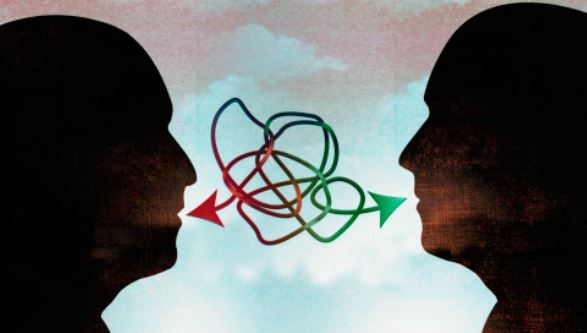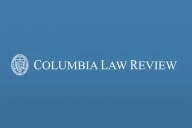You have /5 articles left.
Sign up for a free account or log in.

Getty Images
Anyone who’s ever thumbed through an academic publication knows that what professors write, think or talk about doesn’t always translate to a wider audience. Ideas that are riveting to a group of scholars in the same field might elicit yawns from outsiders. Likewise, ideas that are relatively uncontroversial among colleagues might elicit outrage from the public.
That’s what happened this week when cherry-picked tweets about race by Saida Grundy, an incoming assistant professor of sociology and African-American studies at Boston University, made headlines. Was BU bringing a racist onto the faculty, bloggers and commenters -- mostly those from outside academe -- asked in response to Grundy calling white college men a “problem population.” Lots of sociologists, meanwhile, rushed to Grundy’s defense, citing empirical evidence supporting her claim and generally asking what the big deal was.
The situation and others like it raise important questions for scholars, regardless of whether they agree with Grundy. Among the questions: What, if anything, should they keep in mind when discussing potentially controversial ideas in public forums? In other words, what should scholars expect to happen when they leave the “bubble” of their discipline and, more broadly, of academe?
“I think sociologists who study race and gender found the comments fairly uncontroversial, given that white males are overrepresented in a variety of different pathological behaviors, some of which take place on college campuses,” such as binge drinking and accusations of sexual assault, said Matthew Hughey, an associate professor of sociology at the University of Connecticut who’s been following Grundy’s case, and who responded to a request for comment on it through the American Sociological Association. (The association declined comment.) “Her tweet in and of itself was grounded in empirical social scientific findings over the last half century.”
So why the controversy, which resulted in twin statements from both Grundy and Boston University, expressing regret over her remarks? “What ruffles people’s feathers is that they aren’t aware of the social scientific evidence, and/or they’re simply hostile to the idea of white masculinity being scrutinized,” Hughey said. He deemed much of the backlash against Grundy to be based on “false equivalencies,” or the idea that her statements were as bad as white male professors commenting similarly on a traditionally disempowered group, such as black women.
Of course, a likely minority of those who sounded off against Grundy this week are aware of the academic arguments against false equivalencies. So whose job is it to help bridge the gap between academics and the public, minimizing miscommunication across spheres? Hughey said professors have a right and perhaps a duty to be “radical” in its purest sense -- getting at the root of a problem and illuminating it for others. At the same time, he said, scholars from historically “marginalized” perspectives and backgrounds, such as Grundy, who is black, “have to be particularly careful about how they present their work.” That means leading with empirical data, “instead of speaking as if it is opinion or a personal brainchild,” he said.
Leading with peer-reviewed, vetted data doesn’t safeguard against controversy, especially when one’s comments challenge power and "normativity," but it helps, Hughey added. And institutions, even when facing intense public pressure from offended legislators and donors in an era of declining public investment in higher education, can help reinforce the importance of academic freedom.
Tressie McMillan Cottom, an incoming assistant professor of sociology at Virginia Commonwealth University who blogs regularly about race and a host of academic issues, also has been following the Grundy case. She said she agreed with the “bubble” premise in general (not necessarily in regard to Grundy), or what sociologists refer to as “professional enclosure.”
“A lot can go wrong when you use ‘inside’ language 'outside,' because we rely so much on social ties and context to make meaning of words,” Cottom said via email. And it’s not confined to sociology, she said. Among historians, for example, discussions of reparations or slavery or racism are hardly controversial, but a 2014 article making the case for reparations in the popular monthly The Atlantic was widely criticized.
Even college students experience some of the inside-outside language phenomenon, Cottom said, such as “the first time they go home on break and realize they speak differently than their families.”
She added, “So, yes, I'd say social media presents a real challenge for academics when we rely so greatly on professional context to talk about things that simply are not discussed in polite discourse.”
James Grossman, executive director of the American Historical Association, agreed that academe can be what he called a “cocoon” in which potentially controversial ideas are conventional. He cited a 2008 op-ed he and several other historians were asked to write under a tight deadline for NBC News about the significance of President Obama’s election. One fellow historian’s take -- that no group "worked harder for, invested in and believed more passionately in this nation than its black citizens" -- attracted substantial criticism, even though the notion is widely accepted among historians due in part to African-Americans' disproportionate representation in military service, Grossman said.
“Academia, especially in the humanities, has a political spectrum and culture that differs from the broader landscape of American politics,” Grossman added. “Academics should participate in public culture. But they should be aware of this different spectrum, which brings with it different assumptions and vocabulary.”
But awareness doesn’t necessarily mean accommodation or the taming of ideas, said Clifford Lampe, an associate professor of information studies who responded to a query posed to the National Communication Association.
A scholar’s obligation, rather, Lampe said, echoing Hughey's "radical" notion of the professor, “is to bring these ideas to the public sphere, and you can’t always be handholding. Some ideas in some disciplines are going to be shocking to some people who are not in that discipline, and the major role of the academic is to create and share knowledge -- and that is exactly what happened [in Grundy’s case].”
Grundy may have taken a different “approach,” Lampe said, such as perhaps numbering her tweets to ensure that readers understood they were part of a larger conversation or context. “But does she need to couch her critique of society or a special type of culture in ways that that culture is comfortable with? That’s not much of a critique at that point.”
Awareness means that academics acknowledge that the “footprint” of Twitter is much bigger than a scholar’s intended network, Lampe added.
Some academics do adjust their language based on the audience, or avoid potentially problematic media altogether. Michael Bérubé, the Edwin Erle Sparks Professor of Literature at Pennsylvania State University and director of its Institute for the Arts and Humanities, said he found Grundy's tweets relatively uncontroversial; he also was a vocal supporter of Steven Salaita, another incoming professor, who lost his tenured position last year -- at the University of Illinois at Urbana-Champaign -- due to the tone of some tweets, in his case, against Israel.
But Bérubé largely avoids Twitter personally, he said, as it seems "an especially awful medium" and a "rage-generating device." And in just 140 characters, he added, "it's really not possible to make it clear that you're not speaking for your institution or that you are speaking ironically, or that you are caricaturing views with which you disagree."
Beyond social media, he said via email, "I try to be colloquial when talking to nonspecialists. When I had a blog, I tried to alternate between casual, 'occasional' essays and conversations/exchanges/memes with other bloggers. And I found something interesting: the people who got wildest and craziest online -- the people who behaved as if the Internet were the perfect place to drink a bunch of Jell-O shots, strip to their underwear and dance on the table -- were all professors. It was as if after years of professional rigor and discipline, they had finally discovered the joys of the all-caps key."
Not everyone finds the bubble metaphor adequate, however -- partly because sometimes those “outside” it are actually within.
Shannon Gibney, a professor of English at Minneapolis Technical and Community College who was accused of racial harassment by white male students after discussing structural racism in class in 2013, said the metaphor aptly describes one's social location, or sphere of "comfort," where there's the assumption that one "will be legible to someone else."
But where the bubble metaphor breaks down, she said, “is in its ability to accurately describe and account for the very real power dynamics involved whenever black female bodies dare to 'talk back' to white male ones.”
Gibney added, “If a white female sociologist had made exactly the same comments on Twitter as [Grundy], I am quite sure that there would be little to no outrage. Likewise, if I had made the same comments on structural racism in my class, but in a white male body, I know that those white male students would have reacted differently. Any analysis that is valid has to account for the material and embodied aspects of American racial disputes.”









